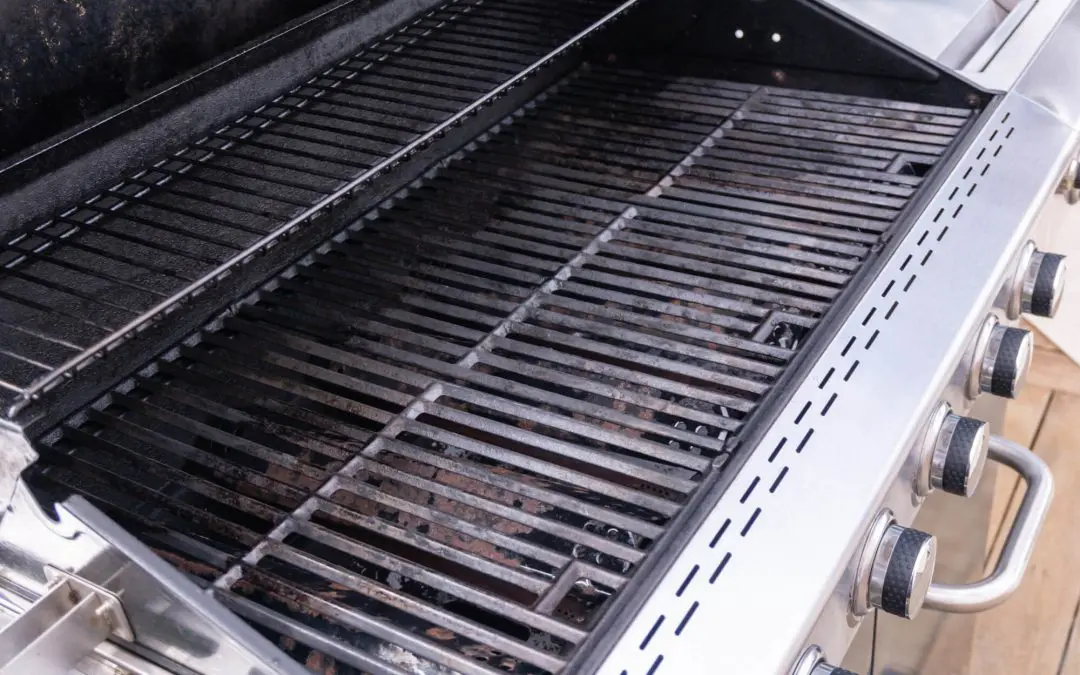As the days get longer and the sun shines brighter, there’s one activity that becomes synonymous with summer—grilling. Whether it’s sizzling steaks, juicy burgers, or charred vegetables, the allure of firing up the grill is irresistible. However, amidst the excitement of outdoor cooking, it’s crucial not to overlook grilling safety. From preventing fires to avoiding foodborne illnesses, taking precautions ensures that your grilling experience remains enjoyable and hazard-free.
Location, Location, Location
Before even lighting up the grill, it’s essential to choose the right location. Ensure that your grill is placed on a flat surface away from any overhanging branches, buildings, or flammable materials. Maintaining a safe distance from your home and other structures significantly reduces the risk of accidental fires.
Cleanliness is a Key Part of Grilling Safety
A clean grill isn’t just about aesthetics; it’s a crucial aspect of safety. Before every use, take the time to clean your grill thoroughly. Remove any grease buildup, food residue, or debris that may have accumulated from previous grilling sessions. Not only does this prevent flare-ups, but it also ensures that your food cooks evenly.
Check for Gas Leaks
Ensure that there are no gas leaks for gas grills. Before igniting the grill, perform a quick inspection of the gas hose and connections. A simple solution of soapy water applied to the hose and connections can reveal any leaks—bubbles will form where gas is escaping. If you detect a leak, immediately turn off the gas and tighten the connections or replace the hose if necessary.
Grilling Safety with Propane
When it comes to propane tanks, safety should be a top priority. Always store propane tanks outdoors in an upright position, away from heat sources and direct sunlight. Additionally, ensure that the tank’s valve is tightly closed when not in use. Regularly check the tank for any signs of damage or corrosion, and never use a tank that appears compromised.
Practice Fire Safety
Grilling inherently involves open flames, making fire safety a crucial consideration. Keep a fire extinguisher nearby and familiarize yourself with its operation. In case of a grease fire, never use water to extinguish it, as this can exacerbate the flames. Instead, close the grill lid and turn off the burners to suffocate the fire. Always have a lid or baking soda on hand for emergencies.
Food Safety is Part of Grilling Safety
While grill safety often focuses on fire prevention, ensuring the safety of the food being cooked is equally important. Always marinate food in the refrigerator, not on the counter, to prevent bacterial growth. Use separate utensils and plates for raw and cooked meat to avoid cross-contamination. Invest in a food thermometer to ensure that meats are cooked to the appropriate internal temperature, reducing the risk of foodborne illnesses.
Grilling is a beloved summer pastime that brings friends and families together over delicious meals. However, it’s crucial to prioritize safety to ensure that these gatherings remain enjoyable and hazard-free. By following these essential tips, you can grill with confidence, knowing that you’ve taken the necessary precautions to keep yourself, your loved ones, and your property safe. So, fire up the grill, savor those summer flavors, and make memories that will last a lifetime—all while staying safe in the process.
Frequently Asked Grilling Questions
Should I grill with the lid open or closed?
It depends on what you’re cooking. Grilling with the lid closed creates an oven-like environment, ideal for thicker cuts of meat or foods that require longer cooking times. For quick-cooking items or when you want to sear, grill with the lid open.
What’s the recommended temperature for grilling different types of meat?
The ideal temperature varies depending on the type of meat. Generally, poultry should be cooked to 165°F (74°C), pork to 145°F (63°C), beef to 130-160°F (54-71°C) depending on preference, and fish to 145°F (63°C).
How can I prevent food from sticking to the grill?
Make sure the grill grates are clean and well-oiled before cooking. Pat food dry with paper towels to remove excess moisture and avoid overcrowding the grill to allow proper airflow. If your food is sticking, you may be flipping the food too early.
How do I achieve the perfect grill marks on my food?
Preheat the grill on high for at least 10-15 minutes, then clean and oil the grates. Place your food on the grill at a diagonal angle, and avoid moving it too much. Rotate halfway through cooking for crosshatch marks.
Jones & Cooper Home Inspections provides inspections to customers in the Metro Louisville area. Contact us to request our services.

